
Honiara: The Heartbeat of the Solomon Islands
Honiara, the bustling capital of the Solomon Islands, welcomes travelers with its unique blend of rich history, vibrant culture, and stunning natural beauty. Nestled on the northwestern coast of Guadalcanal Island, Honiara offers a gateway to a tropical paradise that is both intriguing and enchanting. Discover the legacy of World War II as you explore the battlefields and memorials scattered around the city, including the iconic Guadalcanal American Memorial. History enthusiasts will be captivated by the stories of bravery and sacrifice that shaped the region. Immerse yourself in the local culture at the bustling Central Market, where you can find an array of fresh produce, handcrafted souvenirs, and traditional artifacts. The market is a sensory delight, offering an authentic glimpse into the daily lives of the Honiara people. Nature lovers will be in awe of the nearby Mataniko Falls and Tenaru Falls, where cascading waters and lush greenery create a serene escape from the urban hustle. For a more adventurous experience, embark on a trek to Mount Austen, offering panoramic views of the island and the Pacific Ocean. Honiara is also a hub for exploring the surrounding islands, with easy access to pristine beaches, crystal-clear waters, and some of the world's best diving spots. Whether you're a history buff, a culture seeker, or an outdoor enthusiast, Honiara promises an unforgettable journey.
Local tips in Honiara
- Visit the Central Market early in the morning for the freshest produce and best selection of local crafts.
- Hire a local guide for the WWII historical sites to gain deeper insights and fascinating stories.
- Wear comfortable walking shoes for exploring the city's natural attractions like Mataniko and Tenaru Falls.
- Stay hydrated and use sunscreen, as the tropical climate can be quite intense.
- Exchange some money for local currency (Solomon Islands Dollar) as not all places accept credit cards.
- Consider visiting during the dry season from May to October for the best weather conditions.
Honiara: The Heartbeat of the Solomon Islands
Honiara, the bustling capital of the Solomon Islands, welcomes travelers with its unique blend of rich history, vibrant culture, and stunning natural beauty. Nestled on the northwestern coast of Guadalcanal Island, Honiara offers a gateway to a tropical paradise that is both intriguing and enchanting. Discover the legacy of World War II as you explore the battlefields and memorials scattered around the city, including the iconic Guadalcanal American Memorial. History enthusiasts will be captivated by the stories of bravery and sacrifice that shaped the region. Immerse yourself in the local culture at the bustling Central Market, where you can find an array of fresh produce, handcrafted souvenirs, and traditional artifacts. The market is a sensory delight, offering an authentic glimpse into the daily lives of the Honiara people. Nature lovers will be in awe of the nearby Mataniko Falls and Tenaru Falls, where cascading waters and lush greenery create a serene escape from the urban hustle. For a more adventurous experience, embark on a trek to Mount Austen, offering panoramic views of the island and the Pacific Ocean. Honiara is also a hub for exploring the surrounding islands, with easy access to pristine beaches, crystal-clear waters, and some of the world's best diving spots. Whether you're a history buff, a culture seeker, or an outdoor enthusiast, Honiara promises an unforgettable journey.
When is the best time to go to Honiara?
Iconic landmarks you can’t miss
Heritage Park Hotel
Experience the perfect blend of luxury and comfort at Heritage Park Hotel in Honiara, your gateway to the stunning Solomon Islands.
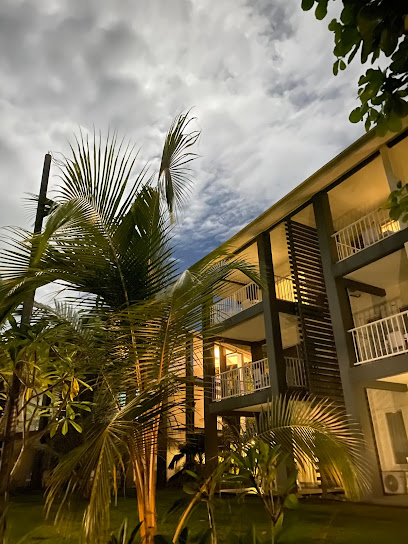
Coral Sea Resort & Casino
Experience the perfect blend of relaxation and excitement at Coral Sea Resort & Casino in Honiara, your gateway to paradise in the Solomon Islands.

Honiara Central Market
Experience the vibrant culture and local flavors at Honiara Central Market, a bustling hub in the heart of the Solomon Islands.
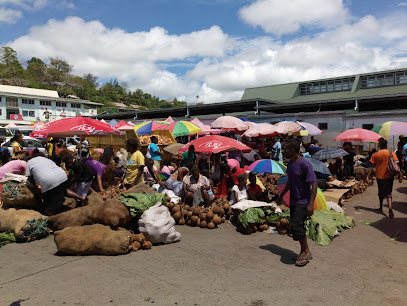
King Solomon Hotel
Discover the unique blend of comfort and culture at King Solomon Hotel in Honiara, your perfect retreat in the Solomon Islands.

Solomon Kitano Mendana Hotel
Discover the perfect blend of comfort and culture at Solomon Kitano Mendana Hotel in Honiara, your gateway to the beauty of the Solomon Islands.

Pacific Casino Hotel
Discover the perfect blend of comfort and excitement at the Pacific Casino Hotel in Honiara, where relaxation meets local culture and entertainment.

Guadalcanal Memorial
Experience the serene beauty and historical significance of the Guadalcanal Memorial in Honiara, a tribute to valor and sacrifice during World War II.
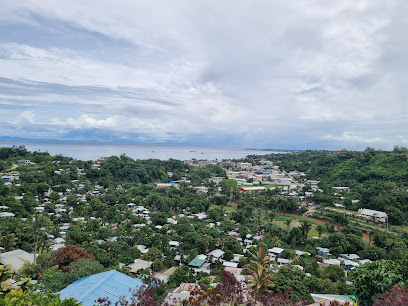
Solomon Scouts & Coastwatchers Monument
Discover the Solomon Scouts & Coastwatchers Monument, a tribute to bravery and resilience in Honiara's rich WWII history, surrounded by stunning landscapes.
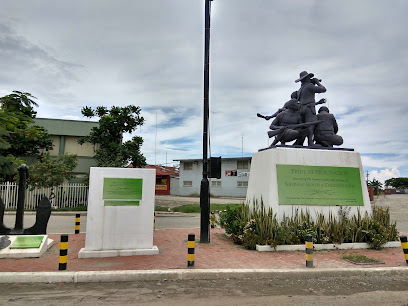
Honiara Hotel
Experience comfort and convenience at Honiara Hotel, your gateway to the beauty and culture of the Solomon Islands.

Vilu Military Museum
Explore the rich military history of the Solomon Islands at Vilu Military Museum, where stories of bravery and sacrifice come to life through fascinating exhibits.
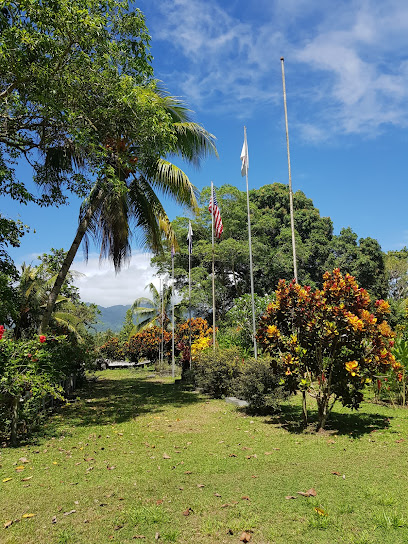
Solomon Islands National Museum
Discover the vibrant culture and history of the Solomon Islands at the National Museum in Honiara, a must-visit for every traveler.
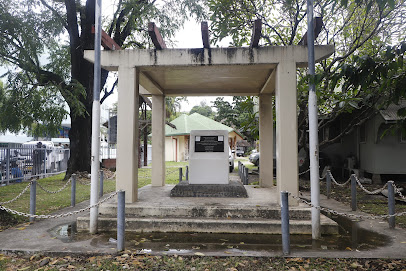
Solomon Peace Memorial Park (Japanese war memorial)
Explore the Solomon Peace Memorial Park, a serene historical landmark honoring the sacrifices of World War II in Honiara's tranquil gardens.
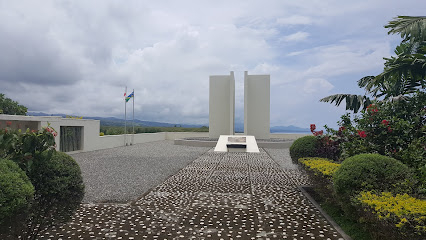
American War Memorial
Explore the American War Memorial in Honiara, a tranquil space honoring the sacrifices of World War II, perfect for reflection and learning.
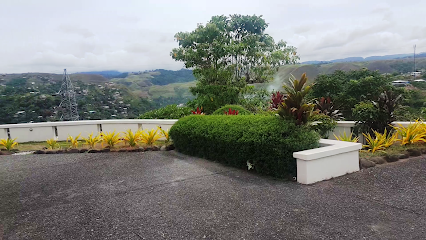
Mr Grill Fast Food & Noodle Haus
Experience the vibrant flavors of Honiara at Mr Grill Fast Food & Noodle Haus, where delicious meals and a friendly atmosphere await every traveler.
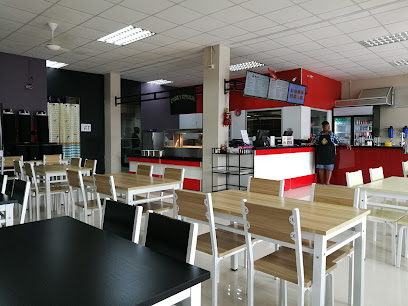
Solomon Islands Ports Authority
Experience the heart of commerce and travel at the Solomon Islands Ports Authority, your gateway to the enchanting Solomon Islands.
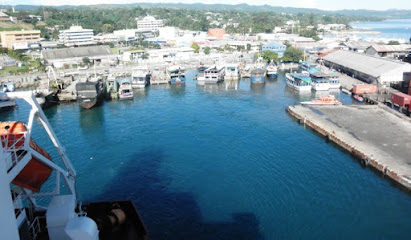
Unmissable attractions to see
Indefinite Island
Discover the natural beauty and unique wildlife of Indefinite Island, a must-visit tourist attraction near Levuka, perfect for nature lovers and adventurers.
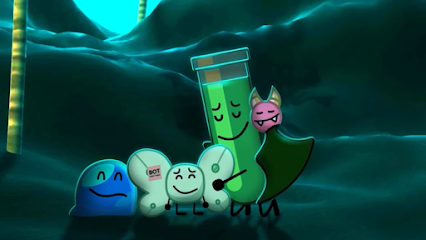
Tenaru Waterfalls
Experience the breathtaking beauty and tranquility of Tenaru Waterfalls in Mbelaha, a must-visit natural attraction for every traveler in the Solomon Islands.
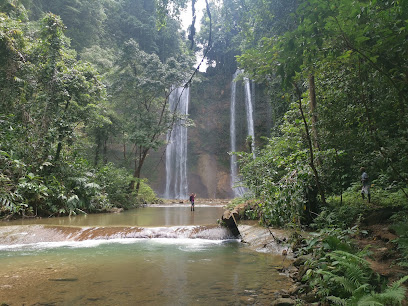
Betikama College War Museum
Explore the historical significance of the Solomon Islands at Betikama College War Museum, a treasure trove of wartime artifacts and stories.
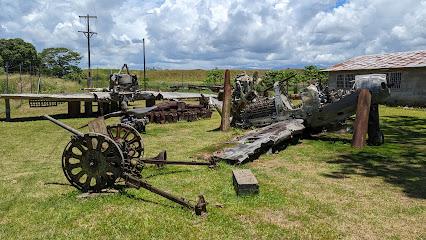
Tetere Beach
Discover the tranquility and stunning beauty of Tetere Beach in Ghorambau, where relaxation meets adventure in a tropical paradise.
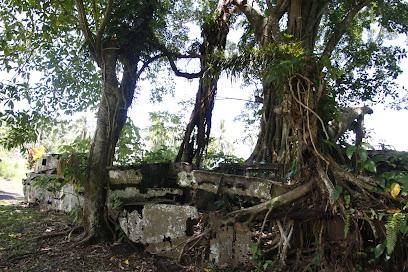
Jamrock River Beach
Experience the tranquil beauty and vibrant marine life at Jamrock River Beach in Ruaniu, a perfect retreat for relaxation and adventure.

Grant's folly
Discover the natural beauty of Grant's Folly in Tanaghai, a hiker's paradise filled with lush trails and stunning vistas.
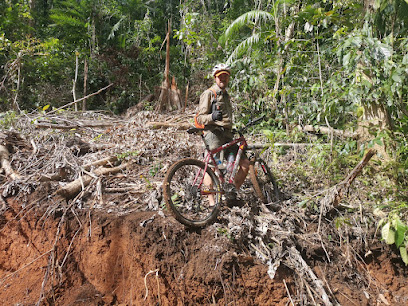
rogando reef
Experience the breathtaking beauty of Rogando Reef in Mbaole, a hidden gem for snorkeling and diving enthusiasts in the Solomon Islands.

Hugukoibuto
Explore Hugukoibuto, a stunning tourist attraction in Vura known for its breathtaking landscapes and rich cultural experiences in the Solomon Islands.
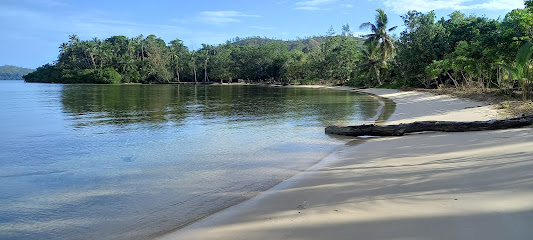
Rodrick Bay Hideaway
Discover the tranquil beauty of Rodrick Bay Hideaway in the Solomon Islands, where adventure meets relaxation in a stunning tropical setting.

Megapodes field
Explore the natural beauty of Petupai's Megapodes Field, a unique attraction for birdwatching and serene experiences in nature's embrace.
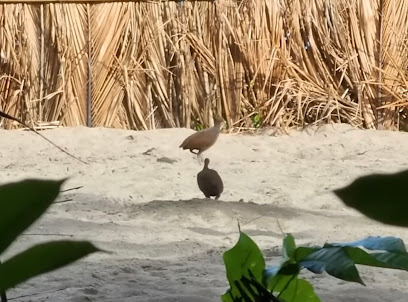
Essential places to dine
Coral Sea Resort & Casino
Discover unparalleled luxury and excitement at Coral Sea Resort & Casino in Honiara – your gateway to unforgettable experiences in paradise.

Tenkai Sushi Cafe
Experience authentic Japanese flavors at Tenkai Sushi Cafe in Honiara - where every dish tells a story of tradition and taste.
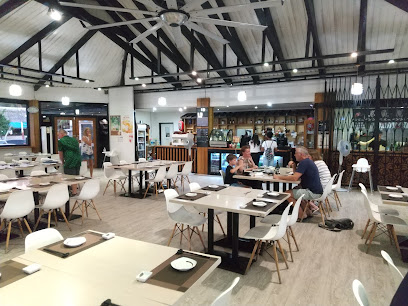
Saigon Sunrise - Honiara Bakery & Vietnamese Restaurant
Discover the authentic tastes of Vietnam at Saigon Sunrise - Honiara's favorite Vietnamese restaurant and bakery.
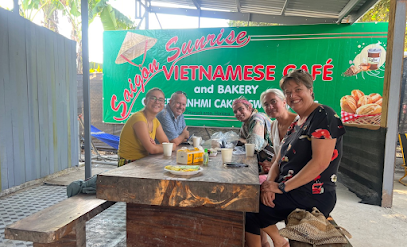
Mr Grill Fast Food & Noodle Haus
Discover delightful fast food and noodle dishes at Mr Grill Fast Food & Noodle Haus in Honiara - your perfect dining stop!
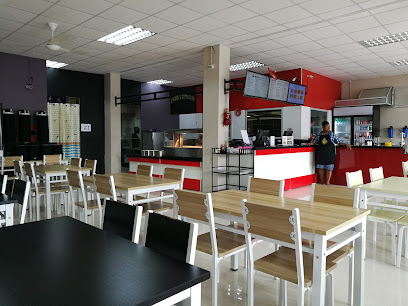
Mambo Juice!
Experience the refreshing flavors of Mambo Juice - where delicious juices meet great coffee in Honiara's lively café scene.
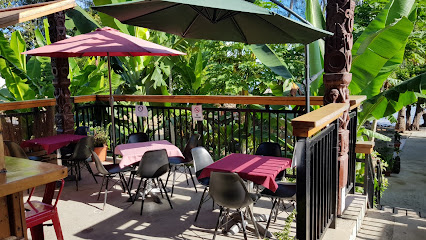
Monarch
Discover Monarch in Honiara: A delightful grill restaurant offering authentic local flavors and vibrant atmosphere perfect for tourists.
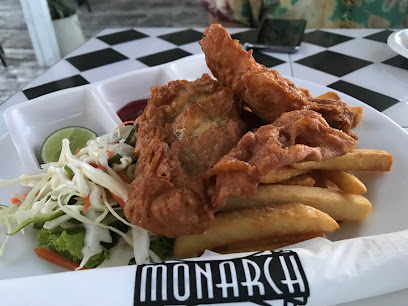
Haydn's Steakhouse
Discover culinary delights at Haydn's Steakhouse in Honiara – where local flavors meet exceptional service in an inviting atmosphere.
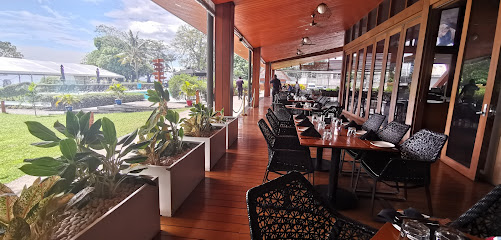
Dong Fang Restaurant
Savor authentic Chinese cuisine at Dong Fang Restaurant in Honiara – where tradition meets taste in every delicious dish.
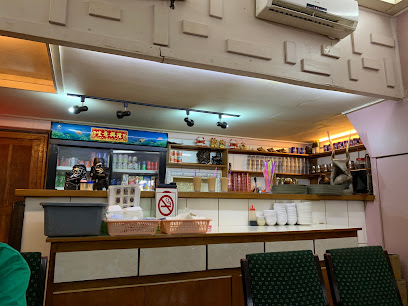
Injoy Restaurant
Discover a culinary haven in Honiara with authentic Chinese dishes at Injoy Restaurant – where every meal is a flavorful journey.
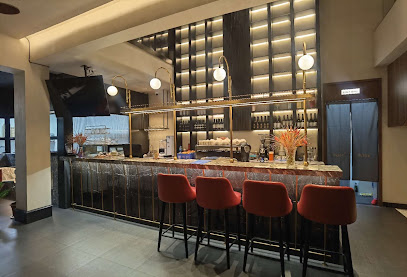
Taste & Traditions
Savor the authentic flavors of the Solomon Islands at Taste & Traditions in Honiara, where tradition meets culinary creativity.
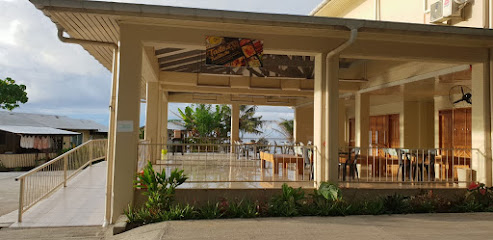
Cowboy's Grill
Experience culinary delight at Cowboy's Grill in Honiara – where local flavors meet international cuisine in a welcoming atmosphere.
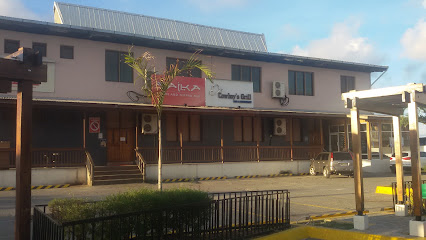
Baker Burger
Discover Baker Burger in Honiara – where gourmet burgers meet local flavors in a cozy setting.
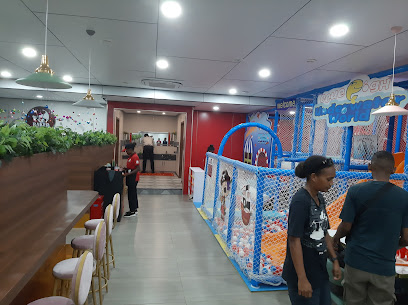
Local Fusion Cafe & Bar
Discover Local Fusion Cafe & Bar in Honiara - where local ingredients meet international cuisine for an unforgettable dining experience.
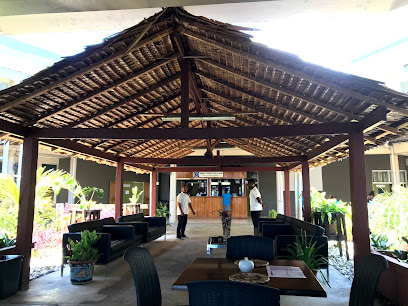
River House
Experience authentic Solomon Islands cuisine at River House in Lungga – where local flavors meet inviting atmosphere.
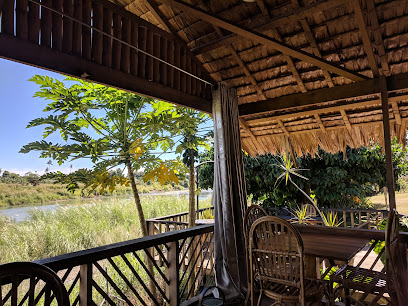
Club Havanah
Discover exquisite French cuisine at Club Havanah in Honiara—where every dish is a celebration of flavor and elegance.
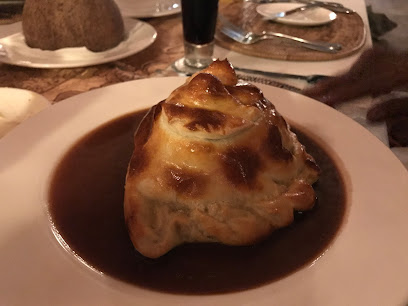
Markets, malls and hidden boutiques
Bulk Shop
Discover local flavors and essentials at Bulk Shop, Honiara's vibrant grocery store, perfect for tourists and locals alike.
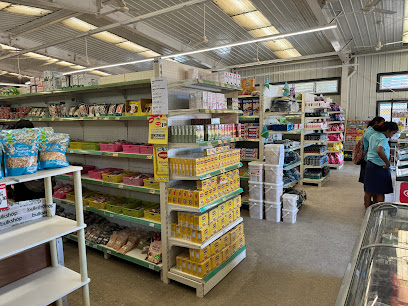
Bulk Shop - NPF Plaza
Explore the vibrant Bulk Shop at NPF Plaza in Honiara, where local flavors meet convenience in an inviting supermarket atmosphere.
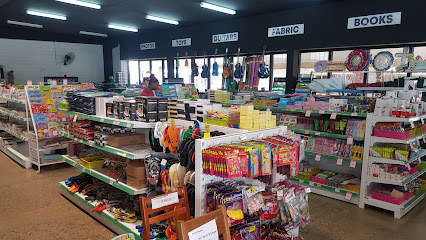
Pacific Clothing
Discover Honiara's vibrant fashion scene at Pacific Clothing, where local style meets quality apparel for every traveler.
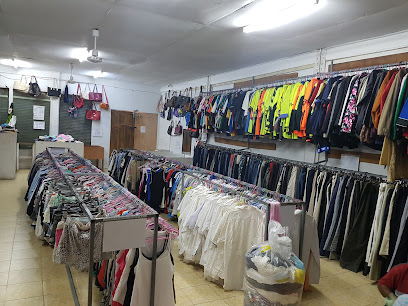
H & D SHOP 2
Explore Honiara's vibrant local culture at H & D SHOP 2, your go-to spot for essentials and unique souvenirs in the Solomon Islands.
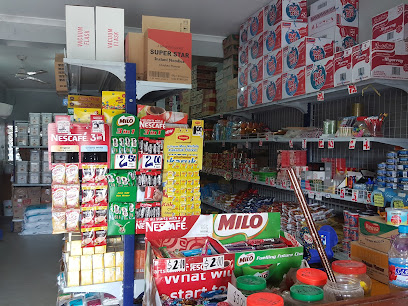
Kosui Store
Explore the vibrant culture of the Solomon Islands at Kosui Store, where unique local treasures await to be discovered by every traveler.

Honey's Op Shop
Explore Honey's Op Shop in Honiara for unique second-hand clothing and a local shopping experience rich in culture and character.
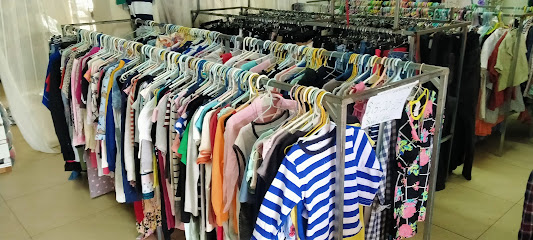
Togamae Store
Explore Togamae Store in Honiara for unique local crafts and authentic Solomon Islands souvenirs, a must-visit for every traveler!

dj's souvenir, merchandise, gift shop
Explore the charm of Honiara at DJ's Souvenir Shop, your go-to destination for unique gifts and local crafts that celebrate Solomon Islands culture.
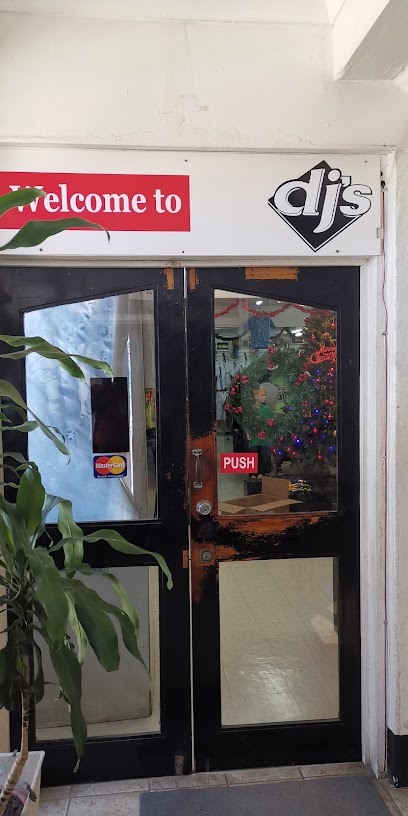
Talon Shopping
Explore the vibrant local culture and unique souvenirs at Talon Shopping in Honiara, a true gem for tourists seeking authentic Solomon Islands experiences.

Joe Green Canteen
Experience the authentic flavors of Honiara at Joe Green Canteen, where local cuisine meets a friendly community atmosphere.
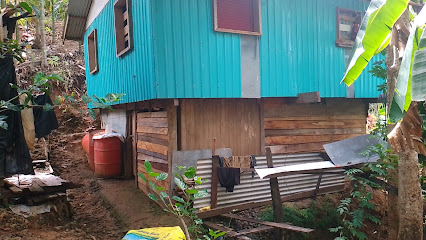
Nautilus Books&Gifts
Explore Nautilus Books & Gifts in Honiara for unique souvenirs, local crafts, and captivating literature from the Solomon Islands.

Fiona Store
Explore Fiona Store in Honiara for authentic Solomon Islands souvenirs, local crafts, and a taste of island culture.

Ashnet Store
Explore the vibrant shopping culture at Ashnet Store in Honiara, where local crafts meet unique treasures of the Solomon Islands.

LEL Second Hand Clothing
Explore LEL Second Hand Clothing in Honiara for unique, sustainable fashion finds that reflect the spirit of the Solomon Islands.

Ranadi
Explore Ranadi, Honiara's bustling general store, offering fresh produce and unique local crafts that capture the essence of the Solomon Islands.

Essential bars & hidden hideouts
Breakwater Cafe
Experience the charm of Breakwater Cafe in Honiara, where delicious food meets breathtaking coastal views in a cozy atmosphere.
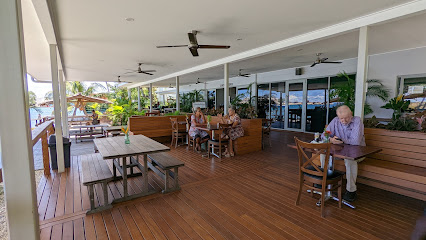
The Coffee Bar
Discover Honiara's favorite cafe, The Coffee Bar, where local flavors meet a warm and inviting atmosphere for an unforgettable experience.
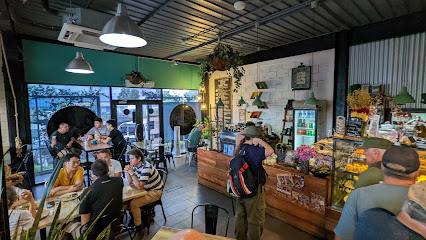
Tenkai Sushi Cafe
Experience authentic Japanese cuisine at Tenkai Sushi Cafe, Honiara's premier destination for sushi lovers and culinary enthusiasts.
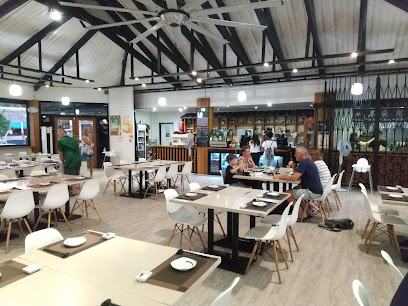
Point Cruz Yacht Club
Experience the essence of Honiara at Point Cruz Yacht Club, where stunning views meet refreshing drinks and vibrant atmosphere.
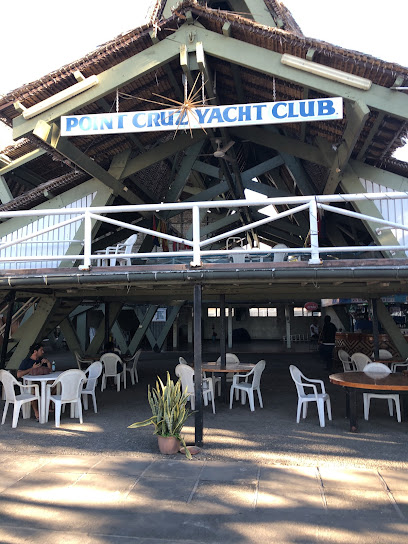
Monarch
Enjoy a culinary journey at Monarch Grill in Honiara, where local flavors meet vibrant grilling techniques for an unforgettable dining experience.
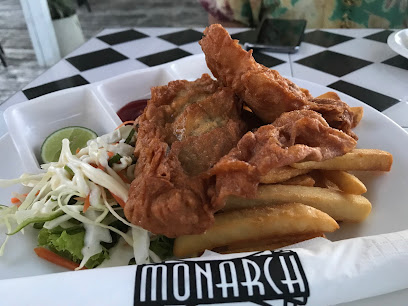
Haydn's Steakhouse
Experience the best of Honiara dining at Haydn's Steakhouse, known for its exquisite steaks and local flavors in a welcoming atmosphere.
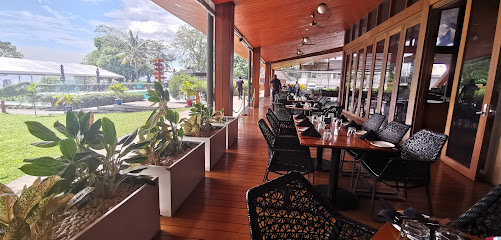
Injoy Restaurant
Experience the vibrant flavors of authentic Chinese cuisine at Injoy Restaurant in Honiara, a culinary gem for tourists and locals alike.
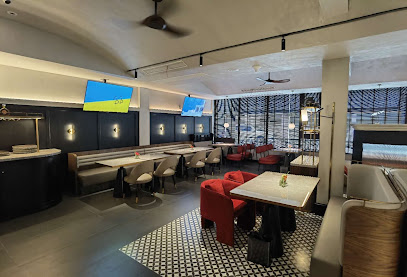
Taste & Traditions
Experience the authentic flavors of the Solomon Islands at Taste & Traditions, a culinary gem in Honiara that celebrates local cuisine.
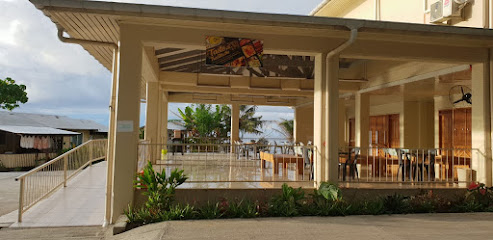
Cowboy's Grill
Experience the best of local cuisine at Cowboy's Grill in Honiara, where flavors meet a vibrant atmosphere for a memorable dining experience.
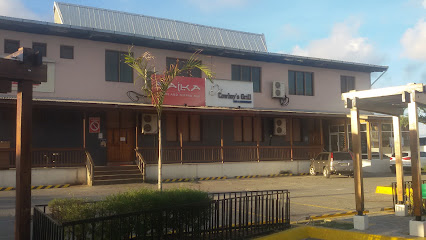
Local Fusion Cafe & Bar
Experience local and international flavors at Local Fusion Cafe & Bar in Honiara, a culinary gem in the heart of the Solomon Islands.
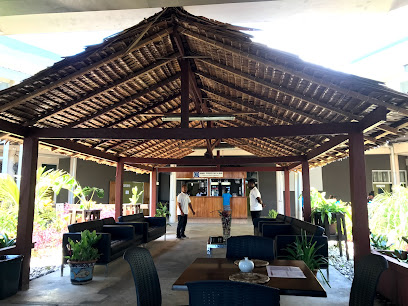
Club Havanah
Experience the finest French cuisine in Honiara at Club Havanah, where exquisite flavors meet a cozy ambiance.
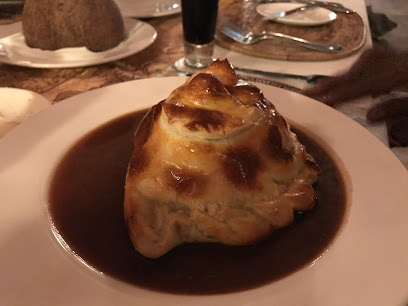
The Food Alley
Experience the vibrant flavors of the Solomon Islands at The Food Alley in Honiara, where every dish tells a story of culinary heritage.
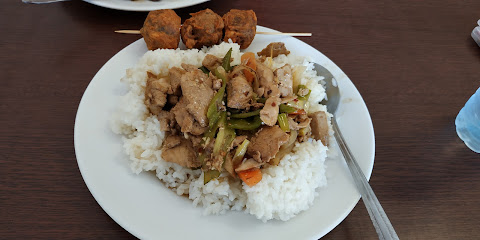
Hakubai
Experience the essence of Japanese cuisine in Honiara at Hakubai, where tradition meets fresh ingredients in a serene dining setting.
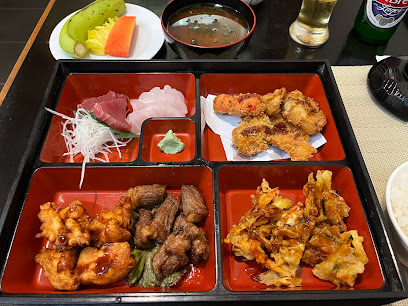
Fun Café
Discover the vibrant culinary scene at Fun Café, a charming restaurant in Honiara, offering a taste of local flavors and international delights.
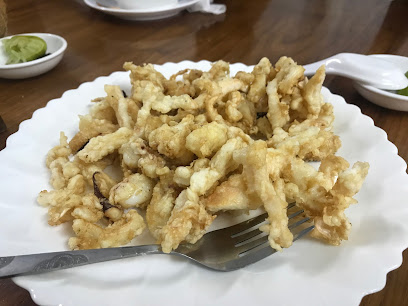
Local Phrases
-
- HelloHalo
[ha-loh] - GoodbyeTata
[ta-ta] - YesIa
[ee-ah] - NoAore
[ah-or-eh] - Please/You're welcomeTangio
[tan-gee-oh] - Thank youTankiu
[tan-kyoo] - Excuse me/SorrySori
[soh-ree] - How are you?Olketa hemi stap long we?
[ol-keh-tah heh-mee stap long weh] - Fine. And you?Kam gut. Na yu?
[kam goot. nah yoo] - Do you speak English?Yu save toktok long Inglish?
[yoo sah-veh toh-toh long ing-gleesh] - I don't understandMi no save hemi se?
[mee noh sah-veh heh-mee seh]
- HelloHalo
-
- I'd like to see the menu, pleaseMi laekim lukim menu, plis
[mee lie-keh-m loo-keem menu, plees] - I don't eat meatMi no kakae solwara
[mee noh kah-kah-eh sol-wah-rah] - Cheers!Kanpai!
[kan-pie] - I would like to pay, pleaseMi laekim pei, plis
[mee lie-keh-m pay, plees]
- I'd like to see the menu, pleaseMi laekim lukim menu, plis
-
- Help!Helpem!
[hel-pehm] - Go away!Go we!
[goh weh] - Call the Police!Kolem Polis!
[koh-lehm poh-lees] - Call a doctor!Kolem dokta!
[koh-lehm dohk-tah] - I'm lostMi lasim
[mee lah-seem] - I'm illMi sik
[mee seek]
- Help!Helpem!
-
- I'd like to buy...Mi laekim fo baim...
[mee lie-keh-m foh bah-eem] - I'm just lookingMi jas lukim
[mee jahs loo-keem] - How much is it?Hao moa?
[hah-oh moh-ah] - That's too expensiveHem ya stret tumas
[hehm yah strett too-mahs] - Can you lower the price?Yu save loaem prais?
[yoo sah-veh loh-ahm prah-eece]
- I'd like to buy...Mi laekim fo baim...
-
- What time is it?Hao taem?
[hah-oh tah-em] - It's one o'clockHem wan taem
[hehm wahn tah-em] - Half past (10)Haef pasten
[hayf pah-stehn] - MorningMonin
[moh-neen] - AfternoonApunun
[ah-poo-noon] - EveningIvinin
[ee-vee-neen] - YesterdayStap insait
[stahp in-sah-eet] - TodayNiu
[nyoo] - TomorrowTumoro
[too-moh-roh] - 1Wan
[wahn] - 2Tu
[too] - 3Tri
[tree] - 4Foa
[foh-ah] - 5Faef
[fah-ehf] - 6Sika
[see-kah] - 7Seven
[seh-vehn] - 8Eit
[ate] - 9Nain
[nine] - 10Ten
[tehn]
- What time is it?Hao taem?
-
- Where's a/the...?Wea hemi...?
[weh heh-mee] - What's the address?Wanem adras?
[wah-nehm ah-drahss] - Can you show me (on the map)?Yu save soem mi (long map)?
[yoo sah-veh soh-ehm mee long map] - When's the next (bus)?Hao long nao (bas)?
[hah-oh long now bus] - A ticket (to ....)Wan tiket (long ....)
[wahn tee-keht long]
- Where's a/the...?Wea hemi...?
History of Honiara
-
Honiara, the capital city of Solomon Islands, was established in 1952. The city was chosen as the administrative center of the British Solomon Islands Protectorate due to its strategic location and natural harbor. It replaced the former capital, Tulagi, which had been severely damaged during World War II.
-
One of the most significant historical events in Honiara is the Battle of Guadalcanal, which took place from August 1942 to February 1943. This battle was a major turning point in the Pacific Theater of World War II. The area around Honiara, particularly Henderson Field, was a focal point of intense fighting between Allied and Japanese forces. The victory of the Allied forces helped to shift the momentum of the war in the Pacific.
-
Following the end of World War II, Honiara emerged from the ruins of the conflict. The city's infrastructure was rebuilt, and Honiara began to grow as a center for trade, administration, and education. The establishment of the Solomon Islands Broadcasting Corporation in 1976 and the National Parliament in 1978 further solidified Honiara's role as the heart of the nation.
-
On July 7, 1978, Solomon Islands gained independence from British colonial rule, with Honiara as its capital. The event marked a new chapter in the nation's history, as it embarked on a journey of self-governance and development. The independence celebrations in Honiara were a significant moment for the city and the entire country.
-
In the late 1990s and early 2000s, Honiara was affected by ethnic tensions primarily between the indigenous Guadalcanal people and migrants from the neighboring island of Malaita. The conflict led to significant unrest and violence in the city. The signing of the Townsville Peace Agreement in 2000 helped to bring an end to the hostilities and paved the way for peace and reconciliation efforts.
-
The Regional Assistance Mission to Solomon Islands (RAMSI) was deployed in 2003 to help restore law and order in the country, including Honiara. RAMSI, a multinational peacekeeping force, played a crucial role in stabilizing the city, rebuilding governmental institutions, and aiding in economic recovery. The mission concluded in 2017 after successfully achieving its objectives.
-
Honiara is a vibrant city that reflects the rich cultural heritage of Solomon Islands. The city hosts several important cultural sites, including the National Museum, which showcases traditional artifacts and historical exhibits. Honiara's markets, such as the Honiara Central Market, offer a glimpse into the daily lives and traditions of the local people. The city's blend of historical significance and cultural diversity makes it a unique destination for travelers.
Honiara Essentials
-
Honiara is the capital city of the Solomon Islands and is located on the island of Guadalcanal. The primary entry point for international travelers is Honiara International Airport (Henderson Field), which serves flights from Australia, Fiji, Papua New Guinea, and other regional hubs. Once you arrive at the airport, taxis and shuttle services are available to take you to your accommodation in the city.
-
Within Honiara, you have several transportation options. Taxis are widely available and can be hailed on the street or booked through your hotel. Public buses, known locally as 'mini-buses,' are a cheap and popular mode of transport for getting around the city. Car rentals are also an option if you prefer to explore at your own pace, but be aware that driving conditions can be challenging due to road quality and local driving habits.
-
The official currency of the Solomon Islands is the Solomon Islands Dollar (SBD). Credit cards are accepted in major hotels, restaurants, and shops, but it is advisable to carry cash for smaller establishments and markets. ATMs are available in Honiara, particularly in the main commercial areas and at banks.
-
While Honiara is generally safe for tourists, it is important to take standard precautions. Avoid walking alone at night, especially in poorly lit areas. Areas such as the Central Market and certain neighborhoods like Kukum and White River have higher incidents of petty crime targeting tourists. Be vigilant with your belongings and avoid displaying valuables.
-
In case of emergency, dial 999 for immediate assistance. For medical emergencies, the National Referral Hospital is located in Honiara and provides the most comprehensive medical services in the country. It is highly recommended to have travel insurance that covers medical emergencies. For minor health issues, pharmacies are available in the city where you can purchase over-the-counter medications.
-
Fashion: Do dress modestly, especially when visiting villages and religious sites. Avoid wearing revealing clothing. Religion: Do respect local customs and traditions. Always ask for permission before taking photos in villages or of people. Public Transport: Do be respectful and patient when using public buses. Don’t eat or drink on public transport. Greetings: Do greet people with a smile and a handshake. Saying 'halo' (hello) is a common greeting. Eating & Drinking: Do try local delicacies and accept food offerings graciously. Don’t refuse hospitality, as it is considered impolite.
-
To experience Honiara like a local, visit the Central Market where you can buy fresh produce, handmade crafts, and traditional Solomon Island goods. Engage with locals, as they are often friendly and willing to share stories about their culture and history. Don’t miss visiting the National Museum and Cultural Centre to learn more about the heritage of the Solomon Islands. For a unique experience, take a trip to the nearby WWII sites, which are significant historical landmarks.
Trending Landmark in Honiara
-
Heritage Park Hotel
-
Coral Sea Resort & Casino
-
Honiara Central Market
-
King Solomon Hotel
-
Solomon Kitano Mendana Hotel
-
Pacific Casino Hotel
-
Guadalcanal Memorial
-
Solomon Scouts & Coastwatchers Monument
-
Honiara Hotel
-
Vilu Military Museum
-
Solomon Islands National Museum
-
Solomon Peace Memorial Park (Japanese war memorial)
-
American War Memorial
-
Mr Grill Fast Food & Noodle Haus
-
Solomon Islands Ports Authority
Nearby Cities to Honiara
-
Things To Do in Tulagi
-
Things To Do in Yandina
-
Things To Do in Auki
-
Things To Do in Gizo
-
Things To Do in Taro Island
-
Things To Do in Arawa
-
Things To Do in Lata
-
Things To Do in Sola
-
Things To Do in Kokopo
-
Things To Do in Luganville
-
Things To Do in Rabaul
-
Things To Do in Alotau
-
Things To Do in Norsup
-
Things To Do in Lakatoro
-
Things To Do in Lamap









